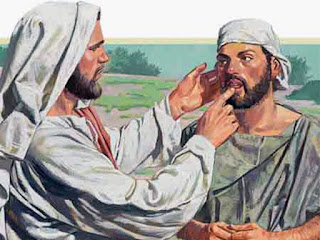The scripture readings for this reflection can be found at http://usccb.org/bible/readings/022820.cfm
This past Wednesday we started the 40 days of Lent with the imposition of ashes on our forehead. As you approached the priest or deacon you would have heard one of two phrases: “Remember you are dust and to dust you shall return” or “Repent and believe in the Gospel.” One person who approached me for Ashes this past Wednesday, after I reminded her that she was dust and to dust she will return, asked me, “What does that mean?” I just responded that it means that without God, we are nothing. Her eyes widened with understanding and it was then that she understood that we are totally dependent on God for who we are.
It is during these days of Lent that we will be focusing on prayer, fasting, and works of charity, in order to bring ourselves closer to God, recognizing that we are dependent on Him for everything.
In our first reading from Isaiah, we learn how we really should be fasting and turning to God. Most people, when they think of fasting, thinks of giving up food for a period of time, or giving up their favorite treat like chocolate or ice cream. Isaiah points out to the people around him in today’s reading that their fasting “ends in quarreling and fighting.” This defeats the whole reason for fasting. Fasting for spiritual reasons is meant for us to become less self-centered and become more concerned with those that God has placed into our lives. The people Isaiah was talking to didn’t seem to get this.
Isaiah goes on to tell us that the fast that God is most pleased with is that of service to those in our lives and society. He tells us that God expects us to help free the oppressed, share bread with the hungry, shelter the oppressed and the homeless and to cloth the naked. These are all different ways of serving Christ. By serving the least among us, we are serving Christ.
Other fasts that we can do is to fast from excessive talk and making time for prayer and contemplation on scripture. We can fast from excessive use of the computer and internet, or we can fast from TV. In place of these things we can use the time to pray for those in our lives that need our prayer. Further, by fasting from these things and reflecting on Scripture more, we can be open to the promptings of God in our lives.
As we approach the Eucharist for today, let us think of the ways we fall short in serving God in our friends and families and pray for the strength to serve God in those people he has placed in our lives.






